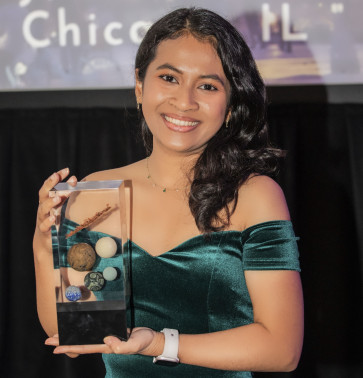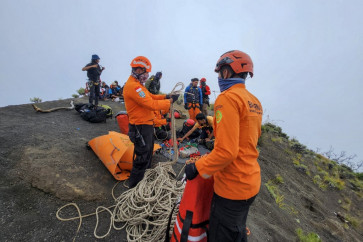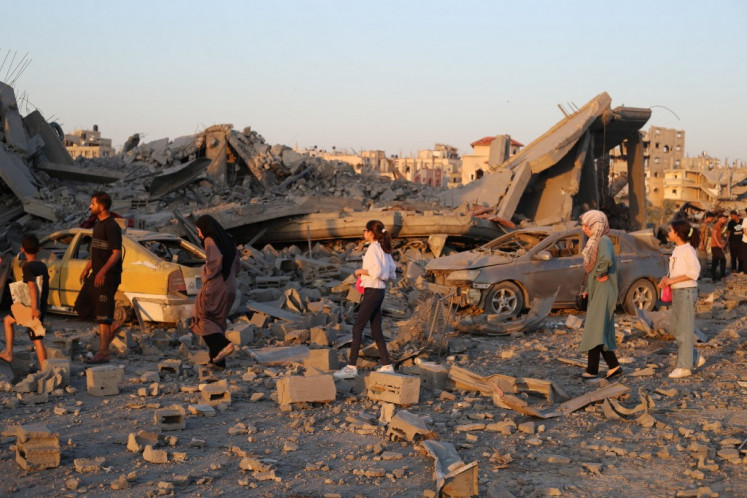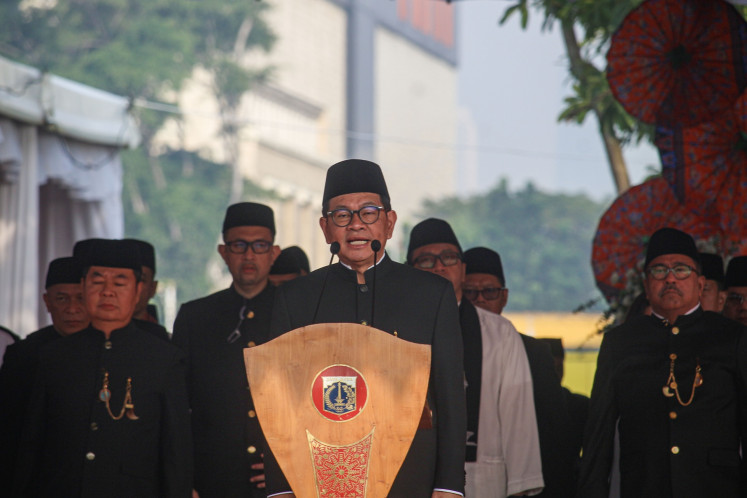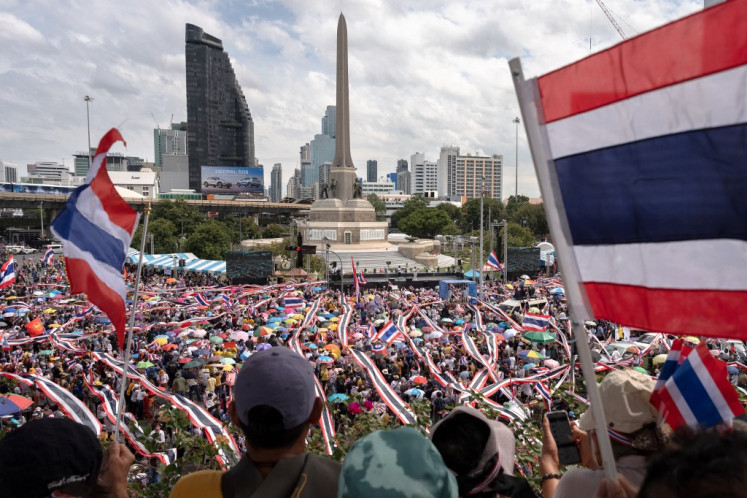Popular Reads
Top Results
Can't find what you're looking for?
View all search resultsPopular Reads
Top Results
Can't find what you're looking for?
View all search resultsSight: Denpasar Festival - 'A year-end street fiesta'
Words Ni Komang Erviani Photos Zul Trio AnggonoThe streets of Denpasarâs old town are hosting a cultural exhibition, food bazaar and shopping stalls for four days during the eighth Denpasar Festival
Change text size
Gift Premium Articles
to Anyone

Words Ni Komang Erviani Photos Zul Trio Anggono
The streets of Denpasar's old town are hosting a cultural exhibition, food bazaar and shopping stalls for four days during the eighth Denpasar Festival. Along the streets, people are enjoying the richness of the city's culture and creativity.
Severe gridlock and limited parking have failed to prevent Denpasar's resident from crowding downtown Denpasar since the festival officially opened on Monday. Thousands of people flock to the location every day, with most choosing to enjoy the festival at night.
The festival's main focus is at the intersection of Denpasar's four main streets, where the Catur Muka statue of the four-faced god Brahma the creator stands. Many people have been seen taking selfies around the statue.
On Monday, a cultural parade was held to mark the opening of the festival with performances taking place at the intersection. A mask parade started the opening ceremony, featuring scores of masked artists dancing in a parade entitled Taksu behind the Tantri mask.
Tantri is a set of animal tales that narrates the philosophy of the struggle between kindness, hubris and greed.
Mredangga Getug Bhumi, a Balinese-style marching band, also performed a theatrical take of Tantri. Performed by 280 artists from the Denpasar Indonesian Arts Institute (ISI Denpasar) and Paripurna art group from Bina village led by artist Made Sidia, the performance amazed thousands in the audience.
Hundreds of children and youths also took part in the parade wearing unique attire that symbolized animals, plants and biodiversity. The performance by Penggak Men Mersi cultural community displayed Bali's traditional games, which are rapidly becoming extinct as most Balinese children now are more familiar with their electronic gadgets.
'We want to remind people that our traditional games are more than just games; they give children freedom while embedding moral values,' said the coordinator of Penggak Men Mersi, Kadek Wahyudita.
Marking the year end, the annual event is co-organized by relevant city agencies, including the tourism, trade and industry agencies, alongside local art communities. The festival is funded by the city administration's annual budget.



This year, the festival has taken the theme 'Demi Denpasar' or 'For The Sake of Denpasar' and is taking place on Jl. Veteran, Jl. Gajah Mada, in front of Jagatnatha temple and on I Gusti Ngurah Made Agung field, which is more popularly known as Puputan Badung field.
At least 85 culinary booths are selling traditional foods, such as tipat cantok, blayag, bulung and many more. There are also many booths displaying products native to Denpasar, including endek hand-woven cloth, jewelry and many kind of plants.
The festival features a photography exhibition, handicraft expo, as well as a cartoon exhibition that takes a critical look at Denpasar's complicated problems.
Balinese musicians have been entertaining visitors thronging the areas around Puputan, Catur Muka square and the Gajah Mada heritage area. The festival ends on New Year's Eve with many art and music performances.

